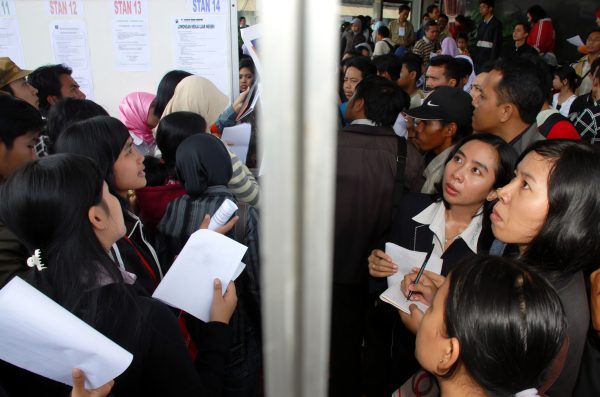Indonesia is considering offering dual citizenship to people of Indonesian descent in order to attract more skilled workers to the country, a senior cabinet minister said yesterday.
Speaking at a briefing yesterday, Coordinating Minister of Maritime Affairs and Investment Luhut Panjaitan said the government planned to give dual citizenship to former Indonesian citizens living overseas, without offering any further details.
“We also invite diaspora Indonesia and we give them also, soon, dual citizen[ship],” he said at a briefing attended by Microsoft CEO Satya Nadella in Jakarta, Reuters reported. He said the policy change would “bring very skillful Indonesians back to Indonesia.”
Indonesia currently does not recognize dual citizenship for adults. Under the 2006 Citizenship Law, children of one Indonesian and one non-Indonesian parent may hold two passports until they turn 18, after which they have three years to register their preferred citizenship. Of the 11 Southeast Asian nations, only Vietnam, Thailand, the Philippines, Cambodia, and Timor-Leste allow dual citizenship.
The policy is intended to help reverse the flight of young talent to more developed nations, where salaries are higher and opportunities more abundant.
A preferred destination in recent times has been Singapore, which has targeted young talent from around the region in order to make up for its famously low birthrates, which hit a record low in 2023.
In recent years, a rising number of Indonesian nationals have chosen to relinquish their citizenship to become Singaporeans. Citing Indonesian statistics, The South China Morning Post reported last year that “almost 4,000 Indonesians gained Singapore passports between 2019 and 2022, most of them students aged 25 to 35.”
Many others are also attracted by scholarships offered by nations like Australia and New Zealand, which often come with full tuition, pre-departure training, and generous living stipends.
One can’t blame young Indonesians for seeking richer pastures. The unemployment rate for those aged 15-24 currently sits at an alarming 19.4 percent according to the government statistics agency, compared to 5.3 percent for the population as a whole. Meanwhile, those who do secure decent jobs receive much less money for the same work. In Indonesia, official statistics showed that the average monthly salary of Indonesian graduates in 2022 was 4.3 million rupiah ($286), while comparative salaries in Singapore in 2023 were more than 10 times higher.
However, the accumulated economic impact of this talent could be considerable over the long term, undermining the government’s goal of becoming a developed nation by 2045, which relies on Indonesia leveraging one of its key economic advantages: its young population.
According to TalentSquare Asia, a Kuala Lumpur-based recruitment agency, “the departure of highly skilled individuals poses a significant threat to the country’s science and technology sectors, making it challenging to keep pace with the demands of a rapidly changing global economy.”
While allowing dual citizenship may not prevent young Indonesians from seeking opportunities abroad, it would encourage some to return and invest in the country. It would also help reverse the equation in which foreign nations are benefiting disproportionately from the talents of the country’s best and brightest.





















Discussion about this post